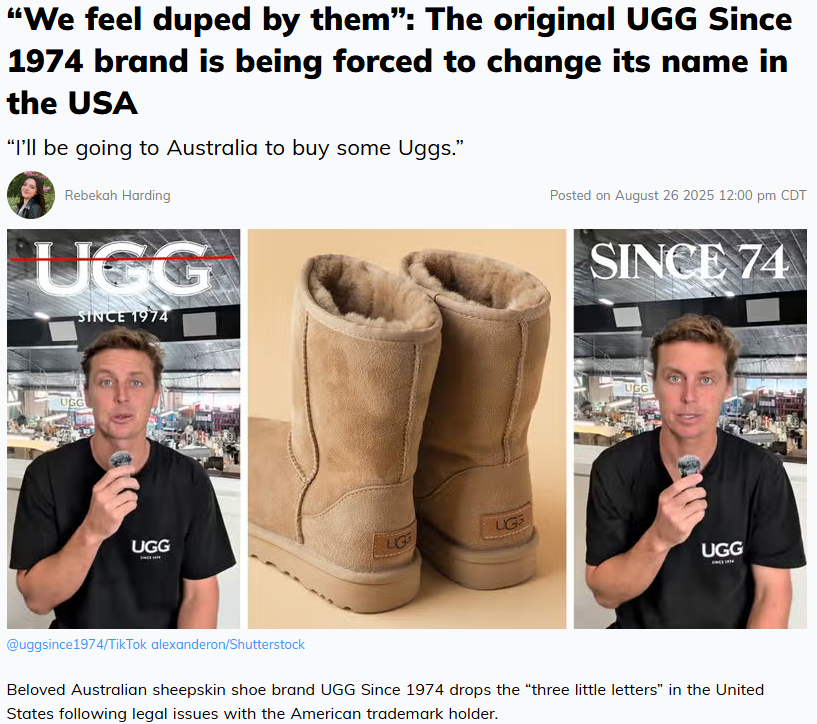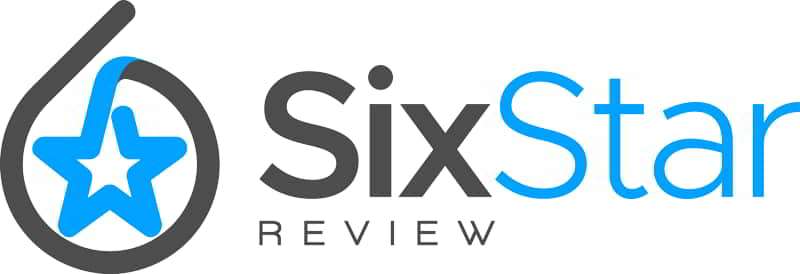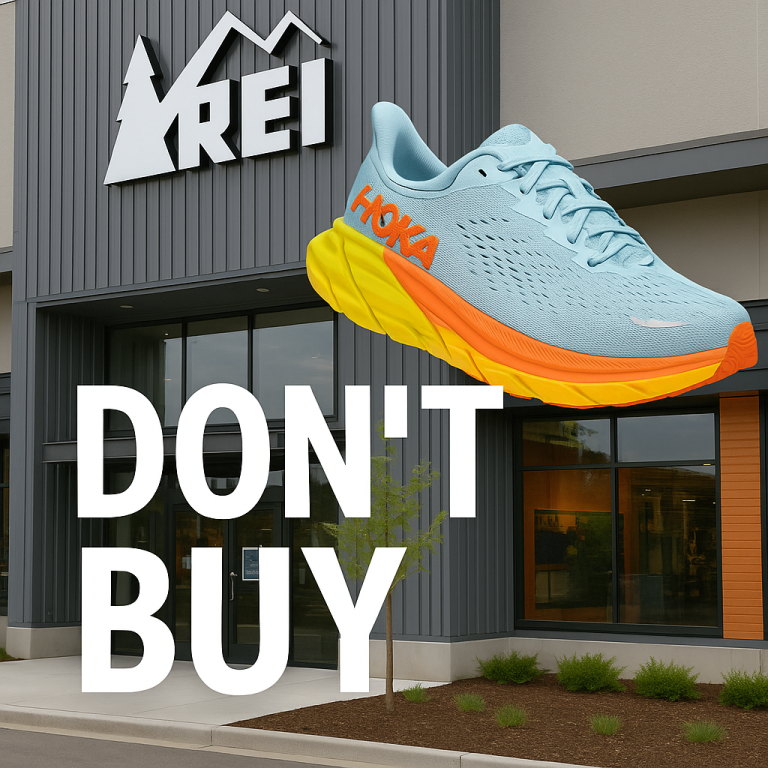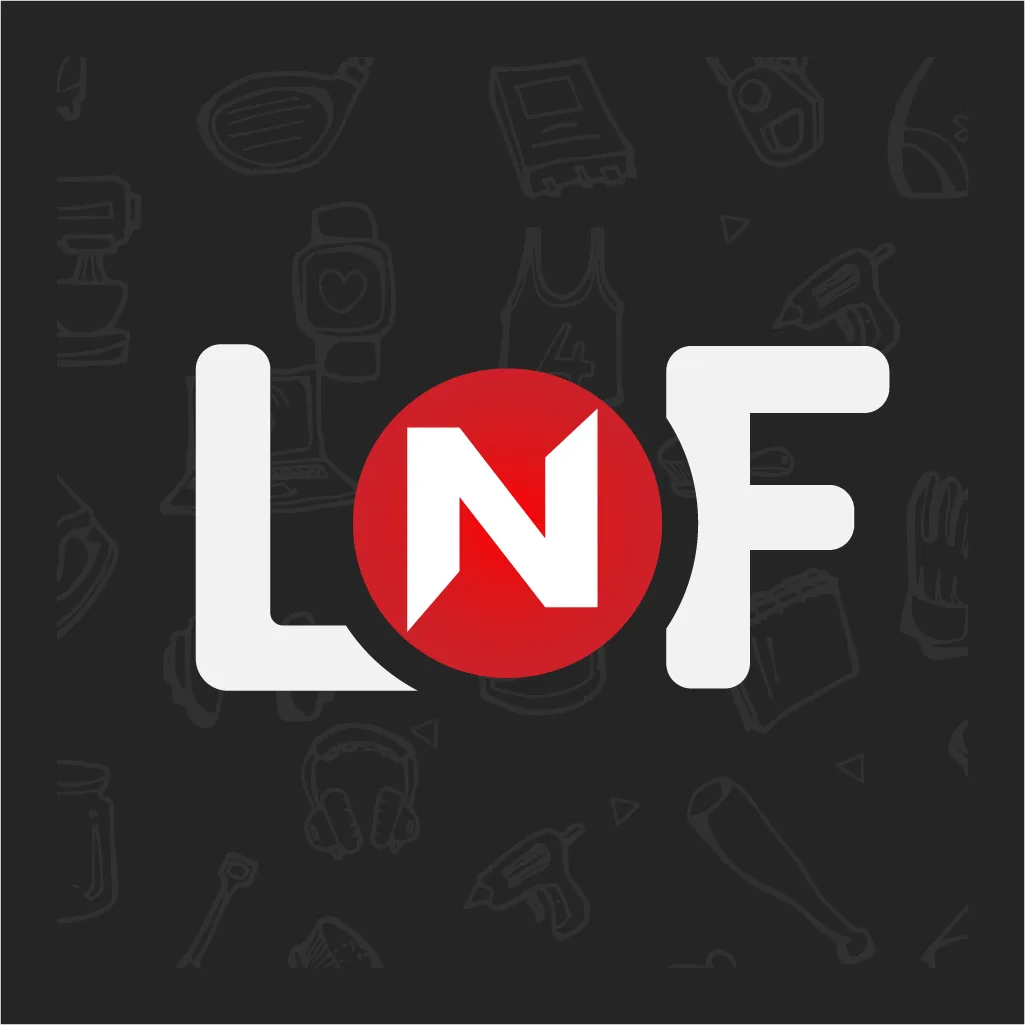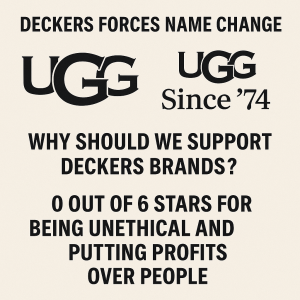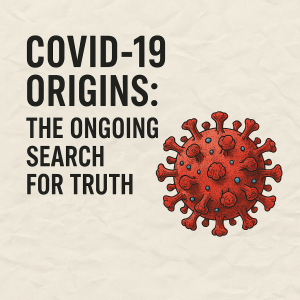REI (Recreational Equipment, Inc.) has long been regarded as a model for purpose-driven business—an outdoor co-op grounded in integrity, environmental stewardship, and doing the right thing. Since its founding in 1938 by Lloyd and Mary Anderson, REI has operated not just as a retailer, but as a principled community that believes in equity, access, and responsibility. Their mantra, “A life outdoors is a life well lived,” is more than a marketing slogan; it’s a reflection of their corporate DNA.
REI has taken bold stances over the years to uphold those values: closing its stores on Black Friday to encourage people to #OptOutside, advocating for public lands, committing to climate neutrality by 2030, and creating transparency in its supply chain and sustainability practices. The co-op is also a certified B Corporation, bound to operate in a way that benefits not just shareholders but all stakeholders—people and planet included.
But what happens when one of REI’s partner brands appears to contradict these values?
The HOKA and Deckers Controversy
HOKA, a fast-growing running and trail shoe brand popular among outdoor enthusiasts, is owned by Deckers Brands—the same parent company behind UGG, Teva, and Sanuk. While HOKA’s performance shoes are celebrated for their comfort and innovation, Deckers as a parent company has drawn sharp criticism for its aggressive legal tactics and intellectual property enforcement—particularly surrounding the UGG brand.
UGG boots, as we know them today, are based on a utilitarian sheepskin boot design that originated in Australia and New Zealand, where the term “ugg” (or “ugh”) was once a generic descriptor for these common footwear styles. However, Deckers successfully trademarked “UGG” in the United States and several other markets, turning a once-generic term into a fiercely protected commercial asset.
In recent years, Deckers has sued numerous small Australian and New Zealand companies for using the term “ugg” to describe their boots—even when those businesses are producing traditional, locally made versions that predate Deckers’ commercial appropriation. Critics argue that this is not only ethically murky, but a form of corporate overreach that undermines local artisans and small business owners in the very regions where the boots originated.
A Conflict of Values?
This puts REI in a difficult and somewhat contradictory position. On one hand, the co-op promotes ethical sourcing, community well-being, and anti-exploitative practices. On the other, by selling HOKA—one of its top-selling footwear brands—it’s indirectly supporting a parent company accused of aggressive and arguably unethical intellectual property tactics that have harmed small, independent manufacturers abroad.
The irony is hard to ignore: REI, which avoids partnerships with companies that don’t meet its sustainability and social impact standards, continues to carry a brand owned by a corporation that many believe violates the spirit of fair competition and innovation.
Navigating the Tension
To be clear, REI is not directly responsible for Deckers’ legal actions. However, as a retailer that markets itself on values and ethical alignment, its continued endorsement of HOKA raises uncomfortable questions. If REI is committed to “doing the right thing”—not taking advantage of others, and standing up for the underdog—then supporting a brand linked to legal intimidation of small shoemakers does raise concerns about consistency.
REI has previously severed ties with brands that no longer aligned with its values—such as halting orders from certain firearm-related suppliers after mass shootings or dropping brands that failed to meet climate or labor standards. So it begs the question: Will REI apply the same scrutiny to HOKA and its parent company, Deckers?
Final Thoughts
The situation isn’t black and white. HOKA is a distinct brand under the Deckers umbrella, and its product development and marketing are largely independent. Yet, in an era where consumers are paying closer attention to supply chains, ownership structures, and the ethical implications of their purchases, it’s worth examining how brand affiliations reflect—or contradict—a company’s stated mission.
For a company like REI, built on the foundation of member trust, cooperative values, and ethical leadership, continuing to partner with brands under scrutiny can chip away at that credibility. As awareness around Deckers’ IP practices grows, it may be time for REI and its members to ask: Is this partnership in step with the co-op’s values—or just another case of mission drift in pursuit of market demand?
If REI wants to remain the ethical compass of the outdoor industry, these are the tough conversations it must be willing to have.
